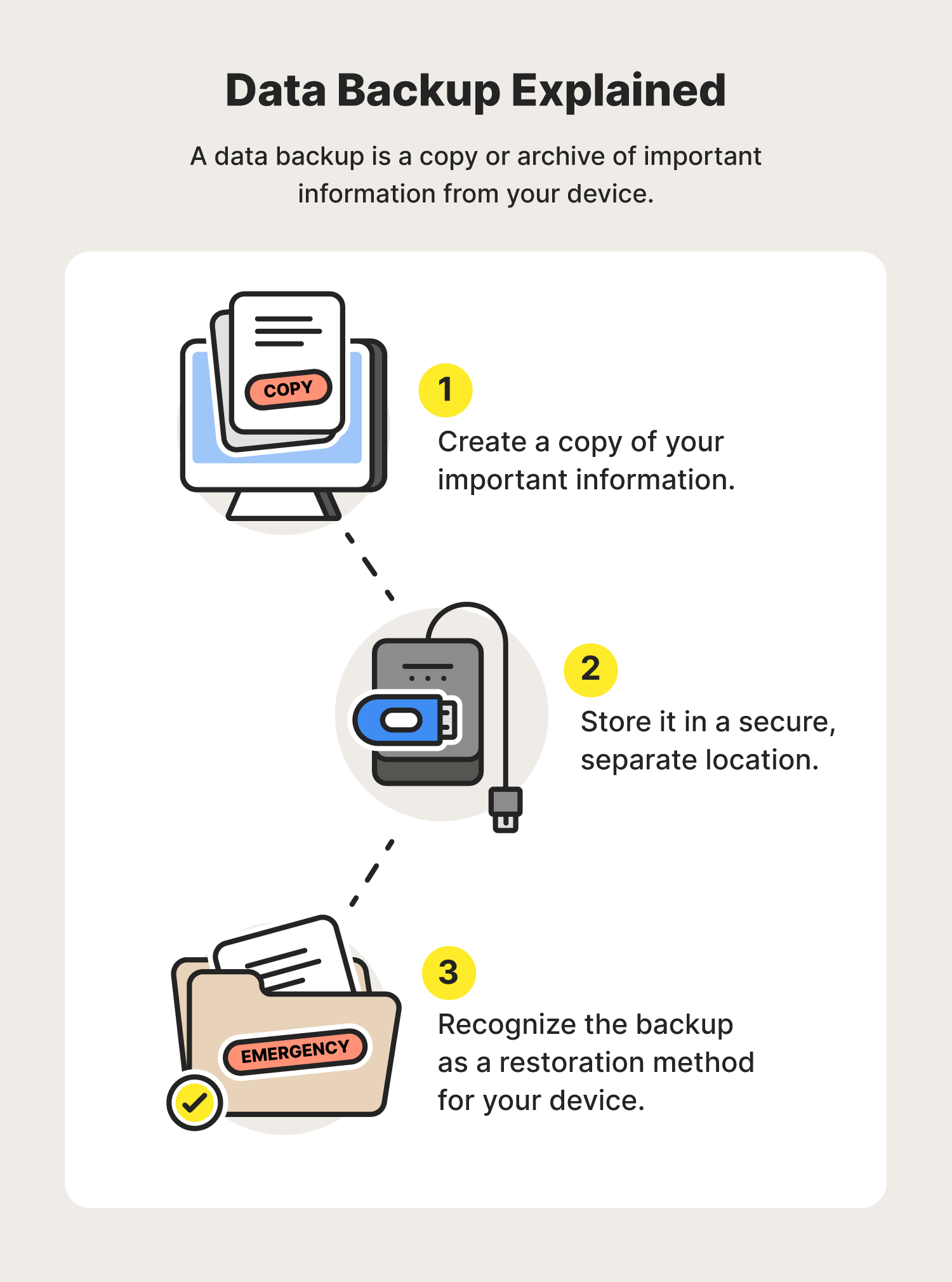In today’s fast-paced digital world, data security is more than a buzzword—it’s a necessity. Whether you’re running a startup or a growing enterprise, your company’s digital assets—client records, employee data, financial documents, and intellectual property—must be protected. Yet many businesses neglect proper data backup solutions, leaving themselves vulnerable to loss, corruption, or cyber threats.
A study by the University of Texas revealed that 94% of businesses that suffer catastrophic data loss never recover: 43% never reopen, and 51% shut down within two years. This is why implementing a comprehensive backup and disaster recovery plan is essential for business survival.
💾 What Is a Data Backup?

A data backup is a secure copy of your critical digital information, stored separately from your main systems. It serves as a safeguard against ransomware attacks, accidental deletion, hardware failure, and natural disasters.
Typical types of data backups include:
-
Files and folders
-
Databases
-
System images
-
Application data
Investing in the right cloud backup services or hybrid backup solutions ensures you can quickly recover and resume operations with minimal downtime.
🧩 Key Components of a Data Backup Strategy
📅 1. Scheduled, Automated Backups
Establishing a consistent schedule is vital. Use automated cloud backup systems to reduce human error and make sure no updates are missed. For businesses with dynamic operations, daily or real-time backups ensure minimal data loss in case of an outage.
Managed IT service providers like Saltech Systems offer 24/7 monitoring and ensure your backup schedule is always followed—so you can focus on what you do best: running your business.
🧪 2. Testing & Monitoring Your Backup System
Conduct regular backup testing to confirm your files can be fully restored. Implement mock disaster recovery drills to ensure your team can execute your recovery plan quickly and efficiently.
Monitoring tools are essential for detecting failed backups, alerting you to issues before they become disasters.
🌍 3. Geographic Redundancy & Cloud Integration
A smart strategy includes redundant backups stored both locally and in the cloud. This hybrid cloud backup approach protects you from localized events like fire or theft.
Cloud-based data recovery provides remote access and enables teams to work from anywhere, even in the face of system failures or regional outages.
🎯 Choosing the Right Backup for Your Business
At Saltech Systems, we offer custom data backup solutions that align with your goals, budget, and compliance needs.
-
Local backups allow for fast, on-site recovery
-
Cloud backups provide secure, off-site redundancy
-
Hybrid solutions offer both speed and security for complete peace of mind
Our solutions are designed with cybersecurity, data compliance, and business continuity planning at the forefront.
Learn more about our Data Backup & Cloud Services.
🛡️ Get More Than Just Backups with Managed IT
A good backup strategy is only part of the equation. With fully managed IT services, your business gains access to:
-
Continuous network monitoring
-
Cyber threat detection and mitigation
-
Ransomware protection tools
-
Cloud migration and IT support
-
Proactive technology consulting
Our Managed IT Service Plans bundle everything together—from automated data backups to cybersecurity audits and system performance monitoring.
Explore our Managed IT Services to take full control of your business tech.
🧠 Final Thoughts: Don’t Wait for a Crisis
Losing data isn’t just inconvenient—it can be catastrophic. The cost of downtime, customer trust, and potential regulatory fines far outweighs the investment in business data protection.
Don’t wait for disaster to strike. Partner with Saltech Systems to implement a secure, scalable, and reliable business backup solution that protects your operations, your team, and your future.
